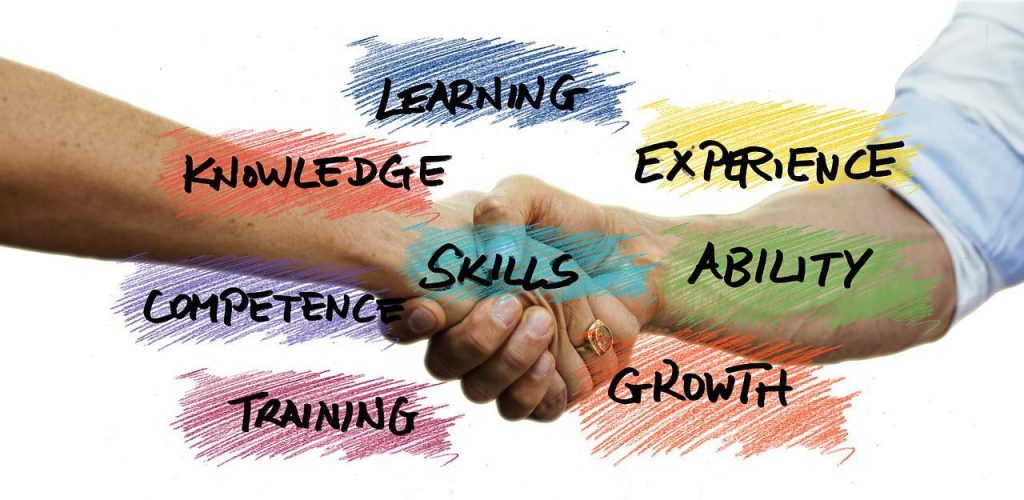There are any number of mistakes both new and not so new life coaches can, and do make, either prior to starting to coach or during the coaching process.
In fact, I’ve probably made the vast majority on this list at some stage and can help you avoid doing the same.
However, if you know what to look for then hopefully you can avoid…….
20 Mistakes New Life Coaches Make

1. Being Influenced By Hard Sell Tactics
When you’re looking for coach training or even help with your marketing you may well attend webinars, one-day sample training sessions or hop on a call with somebody who claims they can help you.
Never, ever be pushed into buying, hiring or signing up there and then.
In fact, I’ll make that even easier for you.
Commit to yourself that you will never agree to any financial commitment when still on the call and that you will take 48 hours to mull it over.
If somebody won’t give you time to think things through and decide whether it’s right for you, then you shouldn’t be giving them the time of day, never mind your money.
A lot of marketers using webinars and sales calls use very high-pressure sales.
Sadly, high-pressure tactics work, and work very well – at least in the short term.
Earlier this year I went to buy a new car with my wife. I explicitly told the salesperson I wouldn’t be buying that day and not to try and close me.
Of course, he did and I don’t necessarily blame him for that, but I do blame him for what he did next, if only because he showed his hand too early.
The car was just short of $30k and he said to me, ‘If I can get it down to $25,000 for you would you be prepared to buy it today?’
‘No’ I sad, ‘I’ve already told you that, but thanks for letting me know the starting point when I come back’.
‘That’s just the price for today’ he said.
I laughed and said, ‘Yeh right’.
I called him up 2-weeks later when were ready to buy and asked him if I were wasting my time coming in and looking for a deal around $25k or should I go to their competitor.
Amazingly, he was able to do something.
One member of the Fully Booked Coach Facebook group (click to join) was contacted no less than 18-times over a 72-hour period after attending an online webinar for a well known marketing ‘guru’.
That isn’t selling, it’s harassment.
Sadly, there are coach training companies that are little short of sales and marketing organizations and they will use every trick in the book to get you to sign up.
Do your due diligence and talk to as many people as possible.
Remember, most people who have made a large investment in their training will be inclined to believe it was a wise investment because of confirmation bias (more later).
So, try to find people who didn’t have a great experience and ask them why.
I’m sure you wouldn’t buy from Amazon just based on 5-star reviews, you may want to check out a few 1 and 2-star too, just to see the problems people were having, right?
Well, hiring a coach or paying for training isn’t a $20 book that you can send back, it’s a serious investment, so treat it like one.

2. Getting Caught Up In The ‘Just One More’ Syndrome
Being a good coach involves a lot of ongoing learning, you literally will never stop.
I read at least 2 books per month and regularly sign up for courses to expand on what I know.
But, and it’s a big but, it doesn’t stop me from coaching.
Too many coaches think they need to read one more book or attend one more seminar before they are ready.
More often than not they’re already ready, they just have to believe in themselves.
Do you know when you really learn how to drive?
It’s not in a parking lot or even on the highway with an instructor or family member guiding you.
You really learn how to drive when you get out on your own.
Yes, you should get reputable coach training, attend seminars and read, read and then read some more, but at some stage, you have to coach.
If you’re not 100% confident in your own abilities, don’t worry, neither is anybody that cannot be filed under ‘arrogant’ when they first start.
Do pro bono work, or better still do what I did and ask for a small charitable donation so at least the client has some skin in the game.
But whatever you do, just coach.

3. Not Learning Basic Sales Skills
Learning the basics of sales isn’t as difficult or boring as you may imagine.
Selling is about creating win/win scenarios and being able to help people see the benefit of working with you – presuming that is, you think there is a benefit.
It’s absolutely not about persuading, cajoling or hassling people.
Few coaches understand selling, so you immediately separate yourself from the competition if you do and you look like a professional.

4. Practicing Coaching On Friends Or Family
If you’re practising on friends or family it is for one of two reasons.
Either you don’t understand a core concept of co-active coaching. Or you understand it but don’t think it applies to you.
The main reason coaching works is because the coach only has one agenda and that is to help the client as much as she can.
Coaching relationships start with a blank slate and that’s something you can never have with somebody you know.
No matter how vehemently you believe otherwise, if you coach a friend or family member you are going in with an agenda and you are doing them a disservice.
You will already have a sense of how you think you can help.
Plus there is always the chance that the person you are trying to help doesn’t feel like you’re helping them and you damage a relationship.
I don’t care how well you think you have done coaching people close to you in the past or how much they told you that you helped them because they have no reference point of what an independent coach could have achieved.
No matter how much a friend begs you to coach them, or you want to coach them, don’t do it.

5. Listening To The Get Rich Quick (ex) Coaches
I was involved in a conversation with a lady on LinkedIn recently in which she said that the hardest thing for any new life coach was actually closing deals rather than attracting leads.
She then went on to say that she taught one of her clients to close 80% of her leads with zero effort – yes she actually said ‘zero effort’.
I told her I’d worked with over 250 coaches and in all that time not one person has ever said to me, ‘Tim I have all these leads but I can’t close any of them’.
And then when I pointed out that I’d worked with some world-class salespeople and nobody ever got close to 80% unless they were referrals, she called me ‘clueless’.
On looking at her bio I noticed that she’d been working in online marketing for just over a year.
Prior to that she’d owned a gym and also spent just over a year as a coach.
I have 13 years of running a successful online coaching business and rank on the first page of Google for over 50 search terms.
And as I’ve already mentioned, I had 20 years in sales prior to that – so that’s 33-years of relevant experience, and she called me clueless.
There are a lot of people, many of whom are ex-coaches preying (and I don’t use that word lightly) on struggling coaches.
They make outrageous promises about high ticket clients, 7-figure businesses and building sales funnels that require zero effort.
But more perniciously, they claim they can teach you what they often weren’t able to achieve themselves.
Always do your due diligence and be very wary of claims that seem too good to be tue, they almost always are.

6. Not Hiring Their Own Coach (at least to begin with)
I have said many times that I have worked with seven coaches, two of whom were on the business side of things.
Some were better than others, but there wasn’t one who I didn’t learn from.
Hiring somebody who has done what you want to do can rapidly shortcut the process.
Plus it demonstrates that you value coaching.
If you’d happily eat in a restaurant where the wait staff wouldn’t, then be my guest and don’t hire a coach.
Otherwise, you create a credibility gap by not doing what you expect others to do.

7. Burying A Bad Gut Feeling About Working With A Client
Have you ever had a bad feeling about working with a client before you actually started?
I have, on five occasions, and each time I buried my gut instinct under an avalanche of self-justification.
I understand it’s really hard to walk away from somebody wanting to give you money, especially in your early days when maybe you’re not dripping with clients, but it’s imperative.
Of the five people I worked with, four came back to bite me in some way or another.
I’m happy to say that all were many years ago because if I have even a hint that somebody isn’t right for me now then I have no hesitation in saying, ‘I’m probably not the right coach for you’.
You’re gut isn’t always right, one of the clients I decided to work with was a delight, but a 20% success rate isn’t very impressive.
For the most part, listen to your gut.

8. Starting To Coach On A Consult Call
Guess what a consult call is for?
Yep, it’s for consulting.
You need to know if a client is right for you and the client needs to know if you are the right life coach for them.
You will want to know what it is they are looking to gain from hiring you. And they will want to be confident you can help them attain it.
That’s pretty much it.
Yes, you may have some small talk intro to build rapport and you may need to discuss fees or the minutiae of working together such as times and dates, but none of that is coaching.
If you start to coach on a consult you start to work for free.
But that isn’t even the main issue.
What is far worse is that you have no idea where it will take you because you’re off down a rabbit hole.
Then one of two things can happen.
- You solve their issue and they are on their merry way not needing your services.
- You don’t solve their issue and you leave them hanging.
I’m quite aware that there are all sorts of self proclaimed experts proposing you do 2-hour deep dive ‘discovery sessions’ and most of them are failed coaches, or charge fees so high they can afford to miss with 9 out of 10.
The hardest sell in the world is from free to paid and that’s what you effectively have to do when you start coaching on a consult.
I was an accomplished salesperson, but I’d not attempt that.

9. Getting Despondent
It’s hard to be a successful coach.
It took me the best part of three years to ‘make it’ and I nearly quit many times.
But it doesn’t need to take you anything like that long though.
There are a lot more resources like Coach the Life Coach around now, than there were when I was stumbling about in the dark.
Coaching can be feast and famine at times, especially as you work to establish yourself.
I recently went two weeks without an inquiry and then took on five clients in the space of just three days, that’s just how it is for most coaches, including me when I take my foot off the gas.
As a rule of thumb, it’s harder to get clients in July and August than it is in January and February.
Similarly, things tend to quieten down between Thanksgiving and the end of the year.
Just make sure you have the fundamentals in place and keep grinding and hustling.
If you’re going to get down and despondent at every setback and quiet spell, then coaching may not be right for you.

10. Rushing To Offer Advice
I frequently get hired by people looking for advice with online coaching or becoming a better coach, as such it’s fine for me to offer advice.
However, if I’m hired by a client for coaching that has nothing to do with consulting or mentoring, then I’m not there to advise and neither are you.
I know it can be crazily tempting to dive in when you think you can see a solution, but the operative word there is ‘think’.
Even if you work with a client for the rest of your life you will still be missing 95% of what makes up their life.
The only, and I do mean only, time you can offer advice is if it’s explicitly asked for and even then, you should preface it by reiterating it is advice.
If you have a stressed out client who you think could benefit from meditation for example, don’t recommend it, just ask something like, ‘If there were something that’s free, easy to do and scientifically proven to help reduce stress, would you be interested in hearing about it?’
Or even just ask, ‘Have you ever thought about meditation?’
Now wasn’t that easy?

11. Rushing To Fill The Void
Silence can very often be your friend in a coaching session.
You need to be comfortable with and recognize the multitude of benefits it can have.
As Human Beings we naturally feel awkward with silence when we are with people we don’t know intimately.
If you have ever been to any social gathering with lots of people you don’t know you will know what I mean.
People will talk about almost anything rather than stand with somebody they don’t know in silence.
Are the weather and what you do for a living really the most interesting topics in the world?
I suspect not, but they’re the starting point for more conversations in social settings than probably everything else put together.
For new coaches it can be tricky to get comfortable with silence because it feels unnatural.
As such, I have seen new coaches ask a great question, but because the answer wasn’t immediately forthcoming rush to answer it for the client and lost all the effect.
When you ask a question STFU until the client answers.
A long pause very often means you have asked a killer life coaching question and she is processing what you said.
It can also mean you’re dealing with a kinesthetic thinker (somebody who processes thoughts through feelings rather than imagery or sound) and they tend to take longer to respond.
Silence is rarely a bad thing, unless of course a prospective client asks why they should hire you and you can’t think of a good reason.

12. Panicking When A Client Starts Crying
There can be many reasons a client starts crying in a coaching session and many of those reasons have nothing to do with being mentally unstable and not suitable for coaching, so relax.
She could be happy, she could have just had a massive a-ha moment or she may be surreptitiously peeling an onion.
I’ve no idea, and the chances are you don’t know with any certainty to begin with either.
If a client starts to cry, just say, ‘Okay, take as long as you need, I’m here and ready to continue whenever you are.’
That’s it.
Don’t rush to offer a solution, or rush to get out the room, or off the call.
Just wait.
After she collects herself, then you can start to gently try and uncover how, or even if, you can help.

13. Offering Medical, Financial or Dietary/Nutritional Advice
You may be thinking, ‘Well duh Tim’, but hear me out.
Offering medical advice isn’t necessarily saying, ‘Well I’m pretty sure that lump on the end of your nose isn’t a carcinoma, don’t worry about it, let’s get back to coaching’.
It could be something as simple as, ‘I could help you try and wean off your antidepressants’.
You have to be super careful with anything like that unless you want a potential lawsuit on your hands.
Similarly, financial advice doesn’t have to be something as obvious as, ‘Put all your cash into pork bellies, I just watched Trading Places and I think they’re the future’.
It could be suggesting a cryptocurrency because you just made a killing, or even urging them to invest in a start-up because you know they are itching to do so.
Talk about these things if you like (and I’ve had numerous conversations on both over the years), just make sure you make it crystal clear that you’re not offering advice.
Offering dietary and nutritional advice is a bit murkier because there isn’t quite the legislation that there is on medical and financial advice, but there is some, so if you’re not trained in either exercise caution and avoid giving advice.
I have talked a lot about Paleo and Whole30 with clients, but I’m super careful to not suggest that a client adopt either approach.
You can talk about medical and financial issues.
Equally, you can talk about diet and nutrition, just don’t offer advice either explicitly or implicitly.

14. Ignoring Core Values
The most important work I do with clients is around core values. And it’s not even close.
If I don’t understand a clients core values then I cannot claim to know her.
Core values are the deepest level we can go as a coach and they underpin everything.
Core values dictate who we like and who we don’t like. What jobs will appeal to us and what won’t and what will inspire us and what will piss us off.
Setting goals that aren’t values-driven is very close to pointless.
Trying to motivate a client without understanding her values is exponentially more difficult.
And trying to figure out why a client is seemingly self-sabotaging without knowing her values is incredibly tricky.
Discovering a client’s core values can give you some very quick wins when it comes to dealing with procrastination, building motivation and gaining clarity, especially when it comes to decision-making.

15. Priming (especially with core values)
If you want to understand the ridiculous power of priming I suggest you check out the brilliant ‘Thinking, Fast and Slow’ by Daniel Kahneman (al) – one of my all-time favourite books.
Priming impacts implicit memory and can link previous experiences to real-time experiences outside our conscious awareness.
Imagine this:
You are really dirty after a long day down the coal mine (ok, ok, I know this is a stretch but stay with me). As you ride up the elevator you are surrounded by people with faces black with coal dust and coveralls caked in the grime.
When you exit the elevator I am stood waiting for you with a quick word test before you leave for home.
All I want you to do is fill in the following blanks to make a proper word and you’re good to go.
S _ _ P
W _ _ H
B _ _ H
Humour me and do it now before you read on.
There is a high probability you had the words soap, wash and bath on your list – and by the way, it doesn’t always work, but we’re playing a numbers game here.
You could have had soup, wish and bash, but you had been primed by the story and those words felt more comfortable and your brain would have found them a tad easier to the recall because it was already on that wavelength.
It’s very easy to inadvertently prime our clients and thus get the easiest answer rather than the right one.
This is no more apparent than when doing what to me is the most important session, that of core values.
When I am asking a client what each value means to her I’m very careful not to offer any feedback or offer opinions because I run a high risk of priming them and demoting or elevating a value based on something I said.
When I give examples I don’t ever use their own values to do so (at least not prior to the exercise) and I try to avoid even nodding my head in agreement because of the chance of offering a non-verbal prime.

16. Not Looking Out For, Or Recognizing, Cognitive Biases
Cognitive biases are a part and parcel of our make-up. We all have them yet we tend to think they don’t apply to us – just more unaware people.
Which is kind of amusing when studies have shown that even researchers into cognitive biases can fall victim to their subtle, yet powerful effects.
Think of them as blind spots in your thinking and you’re close to the mark.
However, the dilemma is that because they are blind spots then by definition we cannot see them unless we accept we have them and go looking for them carefully and methodically.
Here are 3 cognitive biases that turn up a lot in coaching that you should be aware of.
And the reason you should be aware of them is that otherwise you can get sucked into the client’s way of thinking when we are paid to challenge that and help them think differently.
Negativity Bias
If you have kids, do you think you worry about their safety more now than maybe your parents would have worried about you?
Do you think violent crime and sexual abuse pose a greater risk to your kids than at any time in history?
Yet the stats tell us that both are in decline, but not many people believe that.
And the reason they are sceptical is that when bad things do happen they are so heavily reported that it’s impossible to avoid it.
Not only that, but your brain has a natural tendency toward negativity (it’s ok you’re normal – it’s just an evolutionary thing) and so will remember that a child got abducted on her way to school and not think – yeh but 20 million kids didn’t.
Note: The recent school shootings are heartbreaking and very alarming, but there are actually less kids shot in schools today than there were back in the 1990s, but the intense reporting of these despicable acts wouldn’t make you believe that.
Projection Bias
This is where we have a tendency to think other people think and process information the same way as we do.
Think of all the times you have shaken your head at the actions of others and struggled to understand their behaviour.
That is because you’re looking a the world through the prism of your beliefs and values and not theirs.
You can imagine how this can sometimes reduce the efficacy of the coaching process.
Note: This is another reason to do the values process.
When I get a client tell me that another person doesn’t understand them the first thing I say is, ‘It would be weird if they did.’
Clients who adopt this bias, or more accurately focus in on it regularly are going to suffer a lot of frustration and annoyance when they don’t get their own way and they can quickly fall into a victim mindset.
Confirmation Bias
One of the best ever decisions I made as an early twenty-something was to deliberately go out and read newspapers and books that looked at things from a different viewpoint to the one I held at that time.
At the time I was a staunch Conservative and supporter of Margaret Thatcher.
It wasn’t long before I realized that I was so, simply because that was the household I had been brought up in, and not because of any rationale evaluation or critical thinking on my part.
As such my opinions changed as I exposed myself to new information and viewpoints.
I will still do this from time to time and not that long ago I lost satellite radio for a month and decided to spend the time listening to right-wing radio programs hosted by people like Rush Limbaugh and Sean Hannity.
Er….they didn’t do a very good job of wooing me back to their way of thinking, but that’s another matter and maybe my own confirmation bias played a part?
Your clients will suffer from confirmation bias and this can hinder their progress because it means they will be constantly searching for evidence to back up established beliefs.
For example, they may think all managers are manipulative, greedy scumbags because they have had 3 back-to-back who acted like that.
That could result in them being immediately suspicious of a great new boss and creating a self-fulfilling prophecy when they kick things off with a bad attitude.
There are dozens of cognitive biases and as a coach, you ought to know the most common ones because they affect not just your clients, but you too!
17. Presuming And Not Drilling Down
Coach: ‘You seem a tad agitated today, is everything ok?”
Client: ‘He makes me so angry I could punch him in the face. This time I’ve had enough.’
Yikes!
Imagine that was the opening salvo in a conversation between yourself and a client.
And then imagine that you have had conversations in previous calls around your client having issues with her husband.
What are you going to think and do?
The is a strong probability you presume your client is really angry at her husband and wants to inflict bodily harm on him prior to walking out.
You may well be thinking she’s just had a massive fight with him and she’s probably found out he’s been cheating on her yet again – all of which has led to this outburst.
Yet she hasn’t told you any of that.
In fact, she hasn’t really told you anything other, than she’s annoyed about something.
How do you know the ‘he’ isn’t her boss who has once again stolen credit for her idea?
Or maybe the plumber who has for the third time not shown up to fix her washing machine when she has taken time off work?
There are any number of scenarios that could easily describe what she said yet you have already decided you really knew what she meant.
Presuming we know what a client means based on past calls when it isn’t explicit, is a cardinal sin.
At best we can end up wasting time when we set off down the wrong path trying to help.
But at worst we start to look foolish and unprofessional by trying to guide a client towards a solution to which there’s no problem in the first place.
Within NLP there are two models of language. The Meta Model and the Milton Model.
The Milton Model is also called artfully vague language and is used by politicians, advertisers and cold readers (clairvoyants, fortune readers etc.) in an attempt to get us to fill in the blanks so that what they say makes sense to us personally.
The Meta Model is just the opposite.
It attempts to get past the human tendency (and in some cases, need) to delete, distort and generalize information by drilling down past the surface structure to the deep structure of language and communication.
It’s easy to presume we know what our clients mean and to get caught up in the flow before we even have chance to question ourselves as to whether we are assuming correctly or not.
The first book on NLP was called ‘The Structure of Magic Vol 1′ (al)
It’s not exactly a page-turning rip-roaring experience, but fortunately, it’s not a long one either and it does explain how to use the Meta Model and how to avoid setting yourself up for failure.

18. Getting Offended
As a Life Coach, you’re probably going to be putting yourself in the public domain whether that is through blogging, sending out newsletters, being on social media or public speaking.
And guess what’s going to happen?
Some people aren’t going to like you.
I know, shocking, right? After all, we both know you’re flat-out awesome!
I have had all sorts of abuse hurled at me since I first started blogging in 2006 and to begin with, it bothered me.
Now, I couldn’t give a fuck.
If you think how we react in terms of whether we are offended is a cause and effect, that’s just is how it is, then you accept you’re not in control of your emotions and your reactions.
You can pick and choose what offends you, but if you do, then you have to allow your clients to pick and chose what offends them.
So, if you have a client who is constantly losing her temper or getting down over perceived grievances, then how on earth can you help her understand that she has a choice to react differently if you think you don’t have a choice?
Some things do offend me, but I know that’s based on my values and that in and of themselves they are not offensive – it’s the meaning I give them.
You often hear people say that no baby is ever born racist. True. But no baby is ever born anti-racist either.
I hate racism, sexism, corporate greed, war, poverty, but I understand that’s because of the values I have acquired over my life and no inherent hardwiring.
If somebody says something that initially offends you, slip into reframing mode and ask yourself one, or both, of the following questions:
What else can this mean?
What can I learn from this?
Note the answers and then move on.

19. Trying To Maintain The Coaching Relationship Till Death Do You Part
One of the questions I see asked a lot on social media by newer coaches is, ‘How can I get my clients to renew?’
If you’re thinking that, then you’re probably letting your client down.
What you should be thinking is, ‘How can I get my client to where she wants to be as quickly as possible?’
Of course some people will want, and will benefit from, long-term coaching. I have at least 5 clients on yearly contracts at any one time.
However, firstly, many people cannot afford to keep hiring a coach over and over again, but secondly, and probably more importantly, they may not truly need to.
If you create a co-dependent situation where you need your client’s revenue to survive and the client is using you as a crutch, not only do you suck as a coach, but you suck for creating a co-dependent relationship.
On several occasions, I have refused to continue with a client because I knew I had nothing more to add other than a friendly chat and checking in.
That’s not coaching and requires little ability or expertise.

20. This One Is Over To You
So come on leave me a comment and tell me what you think #20 should be.
Let me know of a common mistake you think coaches make either in the run-up to them starting to coach or actually on a client call.
Note: Let’s leave social media and website design/copy to one side for another time.



Hello dear Tim and thank you for ALL your helpful articles.
I think perhaps the two things I’d potentially add as #20 ideas would be trying to be a good coach without a mentor (different from having your own coach) in as much as there are tricky ethical situations or situations that just knock you backwards from time to time. That’s life-and life would suck without learning from it! I have regular meetings with my mentor who supports me in trying new things, shares experience and different ways of doing things and is a great ethics sounding board.
The second #20 comes directly from not having a mentor; trying to go it alone without a peer support group. Coaching is surprisingly lonely considering it’s a job where you spend almost all your time with people! Just having a chat with other coaches in the same position and experiencing the same wins and challenges as you is so supportive-and sometimes even we coaches need a hug
Setting up as a hobby, not a business. i.e. no systems, processes, forms, calendars, notes. Without a structure of systems and processes, you can’t grow past the hobby stage. In fact you will not even try to grow because the impending admin will prevent you from trying to take on more work. A back office solution to handle your calendar, communication, billing, CRM, etc is essential to build a sustainable practice, anything else is just a hobby.
#20 Permission to interrupt. It is ok to ask your client for permission to interrupt so that conversations don’t go off the rails. If your client talks for 30 minutes straight, they may feel better, but we’re not therapists. We’re here to help our clients move forward.
#21 As a bonus, end each session by creating a commitment with your client to take an action, and create some kind of accountability. Our clients make the most progress between sessions and we can help them there.
Now permission to interrupt is definitely something I should have had on there.
I do kind of ask that, but I say, ‘There will be times I need to dive in’ and then I explain why. I suppose I could ask, but what is they say no?
Thanks for the bonus. And I think that’s valid. occasionally there may not be a need, but overall, yeh.
First of all Tim – I love you!
My #20 would be. At the end of every coaching session don’t assume you did a good job.
Ask for feedback there and then. Ask if there’s anything else they would have liked. Ask if they would like to continue with the process.
It’s challenging to do this at first as you will be convinced your client could say, ‘Well it’s not what I expected, I thought you would have had more answers and no thanks to more can I have a refund?’
But I find these questions quickly build trust.
#21 would be knowing when to ask for a testimonial. I once coached one of the most famous people in the world.
A real wow – can’t believe I’m in the same room as you – person. The deal was (as with all my clients) that our meeting was completely confidential.
At the end they said, ‘That’s it. I’m fixed. Thank you’.
I was a bit shocked and knew I should have asked for a testimonial there and then.
But I didn’t.
I had a feeling I would hear from them again and get a second shot.
I didn’t.
Asking them after the session would have been embarrassing.
And no Mr Brownson I won’t be telling you who it was!
If your client says they are done. Ask for the testimonial!
Totally agree on the testimonials, I ram that message home with new coaches on the course.
As for asking for feedback after the call. I’ve done that on occasions, but I have to admit it’s not something I do very often.
Not sure why because there’s definite merit to it.
And don’t worry you can tell us who it is, nobody reads this blog.
#20 Letting other people tell you what the best way is to go forward. This means forgetting that you have your own unique way to do things. Do not forget your uniqueness makes it possible for you to enjoy your work and that way help clients to enjoy their own life.
Yep! I just had somebody unsubscribe from my newsletter because I swore in this blog post.
I’m afraid that’s me, I actually do swear in real life. For some people that won’t gel, but i’m not changing.
#20 — Trying to Sell “Coaching” Instead of Relevant Solutions
I was so “in love” with coaching, early on, that I thought I could just talk about coaching and the discovery and introspection and self-learning it creates/allows . . . .
I now know that I must effectively offer *relevant* SOLUTIONS to the problems my Ideal Clients have (and help them BUY).
It’s kind of like trying to sell a taxi ride based on the quality of the cab and the knowledge of the city the driver has — instead of talking about the destination the rider wants to reach.
Like it, that is selling 101, good work fella!
We have had some great answers and tbh, I could have chosen almost any of them.
But Mr Hawley, you get the new book, should you so wish of course!
And thanks so much to all of you, you rocked it!
# 20, the most common mistake new Coaches make, is not having a clear niche, and not targeting specific enough outcomes with their clients. So depending on what niche they’re in; the results they offer aren’t tangible enough, and therefore they cover a really broad spectrum of all the ‘techniques or exercises’ they can think to include in a coaching package. This is especially applicable in the ‘personal transformation’ niche, where outcomes tend to be more ‘warm and fuzzy’. A client may say that she just wants to feel happy all the time, or have more energy, or find what is missing in her life. As a coach it is fairly hard to know for sure the client has indeed achieved the results, and that they will stick on a longterm basis. Firstly I think Coaches need to be aware of who their client avatar is they want to attract. Secondly Coaches need to know specifically what they offer, by that, I mean measurable ways to determine that the results have in fact been achieved over the given timeframe. And thirdly Coaches need to remain flexible enough to be able to adapt to what the individual Client is wanting on the day, and not what they like to ‘coach’ on.
Yes indeed. I almost included niching a bit like website design but thought it was tad too involved to cover properly, but you’re spot on.
I think # 20 coaching problem is that they don’t realise that the best marketing is THEMSELVES- how they do their work, how they are when speaking publicly, how they are when doing pro bono work, how they are in each group session. If we do well as a coach, then we have “marketed” ourselves well. No more heavy sell is needed- just be a great coach!
That’s a good point, although I have met great coaches who didn’t have sufficient clients.
Great Article! As a new coach I found it very helpful, thank you!
Good stuff Stefi, glad you liked it.
Great list! Especially the non-coaches who try to sell you what they weren’t able to do. Cracks me up every time when they approach me.
My #20 suggestion would be thinking you can help everyone, and feeling like a failure as a coach if you can’t. Some people simply aren’t coachable (it’s just not the moment, or you’re not the coach to help), and you should determine this in the trial session. When I began, I felt bad when I worked with someone for a bit and then they stopped working with me – I thought I had let them down, that they wasted their money. Lo and behold, they drop me a note 9 months later saying that the coaching was awesome, some of the insights really sunk in, and they’ve made some amazing changes in their life. Even if you never hear from them again, you asked the questions – sometimes that’s all you can do. You can’t force an ‘ah-ha’ to happen.
So since coaches tend to be “givers,” learning to let the person drown if they really don’t want help is a big one.
Ahh, wise word Mr Strobl. I used to get really bummed out if I couldn’t create miracles, but now I know there can be any number of reasons why a client may not get the results they desire, and most have nothing to do with me.
Some truly fantastic comments. In fact they all added a lot of value, so thanks!
As a winner of my time I’m going to go with Sam, simply because niching is so crucial that it’s not enough me thinking that people will realize that niching is a given.
I should have at least said it was a necessity.
Sam, I know you have the original version of the book.
This one is about 30% longer and 50% different so if you’d like a copy let me know.
However, if I can help you in some other way by hopping on a call, I’d be delighted to do so!
#20 Using your coaching business to fix others as opposed to doing your own inner work. You see it in every profession. Ex: the girl with eating disorders becomes a nutritionist…. The desire of personal growth and introspection needs to be nurtured and satisfied in oneself, in order to really do your clients justice. It easy to take that need, any need and project it out onto others. This falls into #6 but I would take it further into the realm of continued Inner Self discovery, need for self care, meditation, discovering ones own shadow aspects, identifying intentions from ego vs higher self. I think Life Coaches more than anyone else need to put time, energy and money into continual self discovery and growth.
I’m considering becoming a life coach mainly because of personal experiences throughout my life that I learned so much from. I just want to help others. I also have 30 years of experience working as a registered nurse with a masers degree. I think my greatest way I could help others would be in their marriages and relationships. Why do I think this? After four failed marriages and seeking counselors to help us get through our troubled times, each time I learned valuable lessons. I decided to stay single for 5 years now and actually feel I now know what it takes to make a marriage work. My faith got me through every trial I went through. I’m a sexual abuse survivor along with physical and mental abuse. I have learned so much from understanding others and loving myself. Self love and respect for yourself is something I had to learn. Boundaries are huge. I never had boundaries. I have read every book possible to understand how sexual abuse can affect a person later in life or any abuse for that matter. I studied the brain and how it works as a child who is developing and experiencing trauma. I feel in my heart that I could help so many people. I have the ability to be sitting in a room of strangers and just feel when even one person in that room is feeling emotional pain. I discover this truth by accident. I know not everyone has faith and some never will. I would never push my beliefs on someone else. I would help them understand their own feelings and why they are feeling that way. I have so much to offer that I just want to share it with the world. The experiences I been through should have led me down a path of drugs and death. Instead the led me to exploring the truths in life. I endured so much pain as a child for 16 years and continued into my adulthood marrying men that inflicted the same pain. I research why I was attracting these same type of men. Finding out the truths was devastating. But it made me understand deeply about myself and changed my way of thinking. I was asked to come talk to a married couple who basically hated each-other. I took my own time on weekends to sit with them and listen. Helped them see the beauty in each-other. Gave them journals to write letters to each-other and read them out loud. The experience was amazing. They turned their marriage around, but also continued to have moments of I WANT A DIVORCE. They are currently still together. There where times I stepped back and told them I could not help them if they did not want help. I never gave advice, I helped them see each-other through rose colored glasses.
Powerful stuff Theresa- you may get some help from people in similar situations by joining the free Coach the Life Coach Facebook group. https://www.facebook.com/groups/coachthelifecoach/
#20 – Ask what was their big take away from the call – or what was the best thing they got from our session. This anchors in that they did get value – and because they said it – they own it.
I recently had a “complimentary call” with someone who didn’t know what they wanted out of the call – and I should have stopped it right there – but I kept trying to add value and fishing around to help….and it was the first time I asked this question and they made up some lame thing…and then proceeded to try to sell me their coaching program for coaches…. So – I learned a lot from this call. The client HAS to have something they want to focus on or it will be just a conversation….and next time I will stop the call instead of trying to push value. WHY this long story? Because it wasn’t until the end of the call when I asked this question that I realized and remembered that we have to have. focus. PS – appreciated the value of this piece you put together.
Nice!
This was awesome!! And I agree with every single word. Thank you.